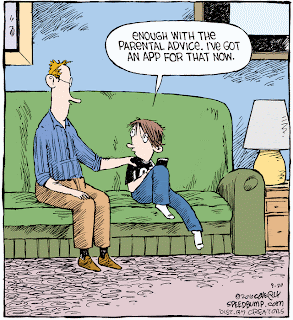The reason I love Brave
New World is because this place fits perfectly for me. I have made that
abundantly clear in class, and want to give some background as to why I
absolutely love a place where nothing bad happens. When I was eleven years old
there was talk of an apocalypse that was imminent in the world, and that apocalypse
was none other than Y2K! This transition from 1999 to 2000 was supposed to be
the end of the world with dogs marrying cats, white turning black, and fish
walking on land. Yeah, yeah I know the whole scenario is stupid looking back on
it, but having been somewhat conscious of my surrounding world I remember being
a little sacred. Everyone around me was, for lack of a better phrase, crapping their
pants so I, being only eleven years old, crapped my pants along with them. Then
New Year’s Eve happened, and guess what. NOTHING
HAPPENED!!!!!!!!!!!!!!!!!! I was hoodwinked by the media and by mass
hysteria, and boy was I mad at that. It was then that I resolved to get back at
the world of drama and manufactured hysteria sort of the way John did by just
showing people an alternate lifestyle. It isn’t that I don’t care at all about anything;
it’s more that one has to prove something is wrong before I will believe
something is wrong. I mean I’m only twenty-four and it would seem that I have
lived through three major apocalypses. The first, as already mentioned, was
Y2K. The second was the financial crisis of 2008, and the third was the whole
Mayan calendar end of the world prediction. All three times people were told
that life as we know it would forever be changed and many would die, yet in
reality life goes on as before and most of us are still here.
How my experiences in this world relate to Brave New World is this. In Brave New World there is no drama and
people’s lives are completely planned out for them. Further, they get to play
obstacle gold. I’m a golfer in case you didn’t know. However, back to the
point, I completely understand that you have to have sadness in order to know
happiness and that it is often beneficial to face tough challenges, in order to
get a better understanding of how the world works and to better improve
yourself. My major concern is with what happens when you plan out something and
it fails. Then what then do you do? The character John tried to get the people
to change, and when they didn’t he eliminated himself. When we were growing up
we all wanted to be something truly special, but for one reason or another life
didn’t turn out that way. I wanted to be President of the USA






